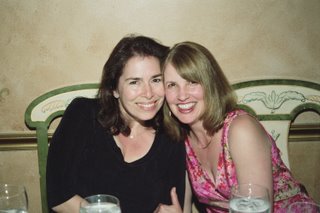
When did aging become such a sin?
Everywhere we look—magazines, movies, TV, billboards—we see airbrushed images of gorgeous, wrinkle-free women who appear to be in their twenties, even when they’re considerably older. These women are held up as our cultural ideal, as if adhering to this rigid and unattainable (at least for ninety-five percent of the population) standard of beauty ensures that we’ll feel fulfilled.
But as social anthropologist Kate Fox argues in her article Mirror Mirror, we don’t just equate this distorted vision of beauty with fulfillment. We equate it with goodness, holding onto “an irrational but deep-seated belief that physically attractive people possess other desirable characteristics such as intelligence, competence, social skills, confidence—even moral virtue.”
No wonder women on average spend two years of their lives looking in the mirror—or so I recently read on YAHOO NEWS. And my guess is that most of the time, we boomers aren’t glancing at ourselves and saying, “Hi gorgeous!” We’re scrutinizing every square inch of our bodies, watching out for each new wrinkle and sag.
I’m tempted to say, “What a waste of energy!” But that would be disingenuous of me. I, too, spend a fair amount of time looking at myself in the mirror, worrying how much longer I’ve got before my 52-year old body starts looking, well, old.
Like many of us, I intuitively understand that I live in a culture which has a proven “beauty bias" (Fox's term)--a society where teachers give attractive students higher marks; employers prefer attractive job applicants; and, in court, judges and juries find attractive people guilty less often.
In other words, it’s no wonder we pay attention to our appearance. The problem is, we don’t just pay attention. We obsess. And the most self-destructive aspect of our obsession is thinking that to be beautiful we have to look young. It’s not just ourselves we’re hurting. When we become complicit in the culture of youth, we’re also doing our daughters a disservice.
My friend Tamara argues that the best thing we could do for them—and for us—would be to start an “older women are sexy” movement. (That's Tamara and me at my 50th birthday party in the picture at the top of this entry.) She envisions a well-thought-out, expensive media campaign designed to change society's perception of older women.
I think she’s onto something.
But if we boomer women want to be seen by our daughters—and the world at large—as vital, interesting, hot mamas, we need to understand that being “hot” starts inside our heads and that being beautiful is something we already are.
Here's what I propose: Let's take care of our skin, but be at peace with our wrinkles. (Do you know any eighty year olds without them?) Let's maintain a healthy weight, but enjoy our womanly curves. Let’s send our daughters the message that we love being who we are—whatever our age. Let’s give them something to look forward to.
So go ahead and take that look in the mirror, but view yourself through kinder eyes. Celebrate each and every triumph, large and small. Then ask yourself, “What do my friends and family love about me?”—and see yourself through those eyes.
Then, after taking stock of what you’ve accomplished and who you are, ask yourself if there’s anything more you’d like to give, anything else you’d like to do. Because there’s nothing quite as irresistible as a woman who’s doing something that gives her life purpose.
Once you get beyond the first few glances, passion trumps physical beauty every time.
NOTE: Here's an excerpt from the first comment posted (see link below), which I was surprised and thrilled to see was from my 23-year old son Ev.
We emphasize the beauty of growing old at the risk of sounding cliché, but the discussion is so vital to keep at the forefront of our collective consciousness. All of us (who don't die young) get old, wrinkly, and "ugly"--we expect nothing less--and yet continue to cling to an aesthetic ideal founded upon characteristics which most of us never have and all of us lose eventually. We set ourselves up for unhappiness in this way – and even those whom we idolize are often unhappy and tortured, even while in the prime of what we call beauty. There’s no easy way to free ourselves from this prison, but the first step to freedom is always in recognizing the truth and discussing it....
Photo credit: Suzanne Sheridan
We emphasize the beauty of growing old at the risk of sounding cliché, but the discussion is so vital to keep at the forefront of our collective consciousness. All of us (who don't die young) get old, wrinkly, and "ugly" -- we expect nothing less, and yet continue to cling to an aesthetic ideal founded upon characteristics which most of us never have, and all of us lose eventually. We set ourselves up for unhappiness in this way – and even those who we idolize are often unhappy and tortured, even while in the prime of what we call beauty. There’s no easy way to free ourselves from this prison, but the first step to freedom is always in recognizing the truth and discussing it endlessly, so bravo for doing so.
ReplyDeleteAnd by the way, it was weird you linked to that Kate Fox article on the Social Issues Research Centre website – I just came across the think tank a couple days ago and was reading an excellent, book length report on “Social and Cultural Aspects of Drinking” – just odd that we would both visit an online British sociological think tank in the same week, haha. Here’s the piece I’m talking about, fyi: http://www.sirc.org/publik/drinking_contents.html.